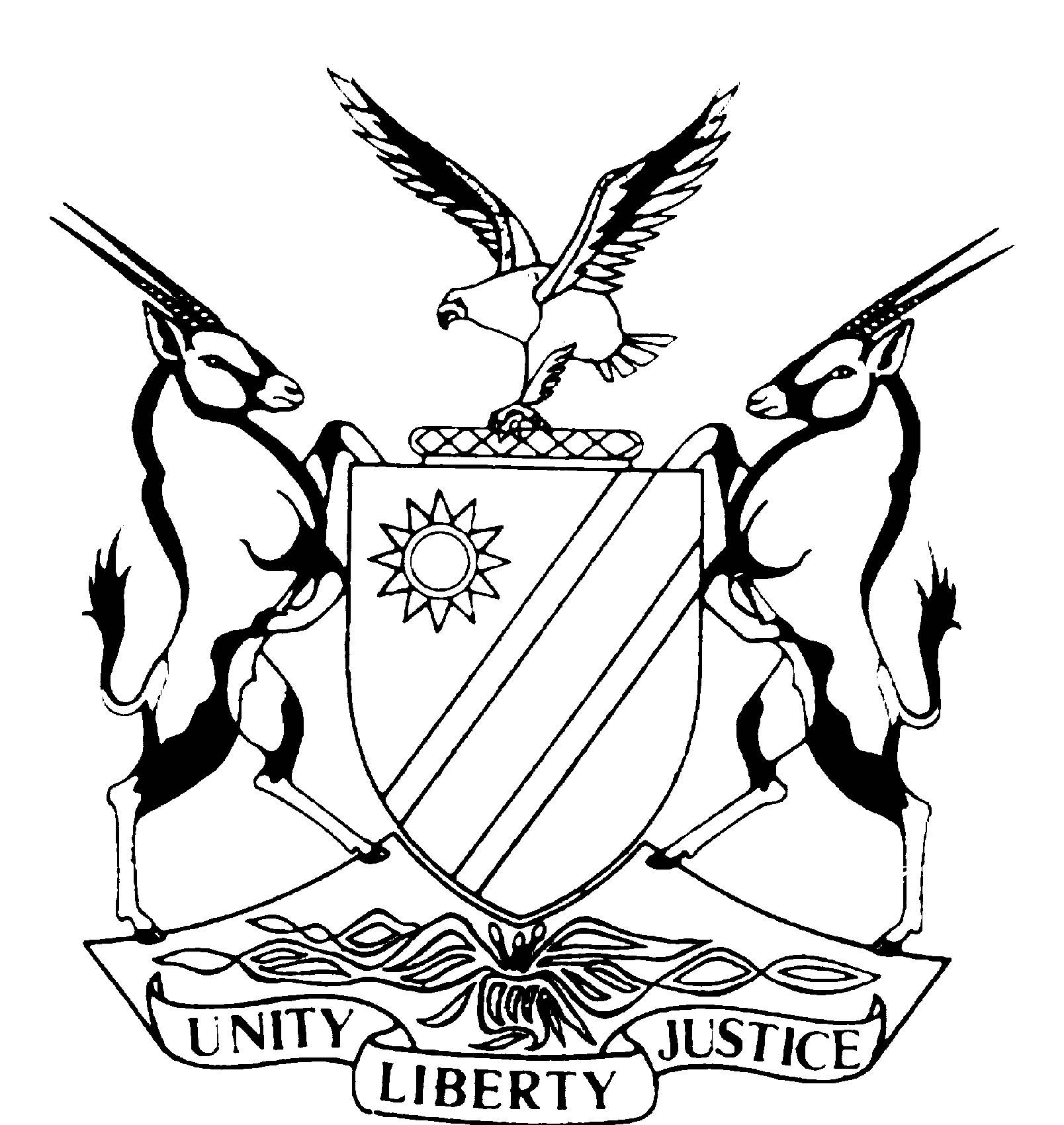
CASE NO.: A118/2011
IN THE HIGH COURT OF NAMIBIA
In the matter between:
RAY H GOBA | APPLICANT |
and
THE MINISTER OF HOME AFFAIRS &
IMMIGRATION FIRST RESPONDENT
THE CHIEF OF IMMIGRATION SECOND RESPONDENT
THE CHAIRMAN OF IMMIGRATION
SELECTION BOARD THIRD RESPONDENT
CORAM: HEATHCOTE, A.J
______________________________________________________________
REASONS FOR JUDGMENT
HEATHCOTE, A.J: .
[1] The applicant, a legal practitioner and citizen of the Republic of Zimbabwe entered Namibia to take up employment with the Government of the Republic of Namibia, attached to the Ministry of Justice in the capacity of Deputy Prosecutor General in or about July 1998. He had applied for the position in 1996 while in Zimbabwe after seeing it advertised in a local newspaper. The position was advertised as one, subject to a two year contract which was renewable.
[2] Since 1998, the applicant had his contract of employment renewed or extended or a new contract was entered into at the end of each two year cycle save for two occasions when it was extended by a period of six months each. At all times when such contract was renewed or extended third respondent upon application by the applicant similarly renewed or extended the applicant’s employment permit by the same period until the last contract and similarly the employment permit lapsed on 31 December 2010.
[3] On 31 December 2010, at which point applicant held the position of Chief (Director) Legal services and International Cooperation in the Ministry of Justice his contract was not extended after a suitable Namibian had been identified to take over from him. Accordingly, his employment permit also lapsed.
[4] When the applicant’s employment permit lapsed on 31 December 2010, the applicant would have immediately become disentitled to continued stay in Namibia, save for a limited period to wind up his affairs. However, apparently third respondent procedurally allows immigrants time to wind up their affairs in the event of expiry of contract and employment permit. Applicant then, applied again for a work permit as well as a permanent residence permit to legitimize his stay in Namibia.
[5] On 15 February 2011, the applicant found out that both applications have been rejected and no reasons have been given. He pursued the matter with officials of first respondent and was advised to lodge an appeal which he did by letter dated 18 February 2011. In it he explained that his last contract of employment had come to an end unexpectedly and pointed out that he had also appealed against the refusal of permanent residence and was also awaiting a decision in respect thereof.
[6] In this application the applicant seeks relief on an urgent basis pendente lite, being the determination of review proceedings to set aside the third respondent’s refusal to reject his permanent residence application as well as his work permit application, to the effect that:
[6.1] the applicant may remain in Namibia and carry on his profession with the firm Shikongo Law Chambers, and that pursuant thereto he be issued with an employment permit;
[6.2] the third respondent be interdicted from deporting or removing or causing the enforced departure of the applicant from Namibia.
[7] As I have pointed out, in the main review application, the applicant seeks the review and setting aside of the various decisions taken by the third respondent (“the Board”), relating to the refusal by the Board to grant a permanent residence permit or an employment permit to the applicant. The applicant further seeks, in that main review application, a declaratory order that he will be entitled to carry on his profession in Namibia and an order that the second respondent – the Director of Immigration – issue a permanent residence permit to him.
[8] Mr. Corbett, acting for respondents, raised the issue of lack of urgency, but I am satisfied that the matter should be dealt with in terms of Rule 6(12).
[9] During argument, Mr. Narib, who acted for the applicant, soon abandoned, and correctly so in my view, the relief sought that the court should allow the applicant to be employed as a legal practitioner with a local law firm. The court cannot grant such relief if the applicant is not qualified to practice as such. Applicant has made out no case for such relief.
[10] Unfortunately for the applicant, he was convicted (by a Namibian Court after he came to Namibia), on a charge of attempting to obstruct or defeat the course of justice. On appeal, this conviction was confirmed by the High Court on 29 June 2004. An application for leave to appeal to the Supreme Court was also refused.
[11] In various subsequent applications for visas the applicant sought to downplay the offence as a “traffic offence”, or failed to furnish details of the offence as he was required to do.
[12] As a legal practitioner, the applicant would have known that in terms of section 39(2) (f) (i) of the Immigration Control, Act 1993, (hereinafter “the Act”) any person who has been convicted in Namibia of any offence specified in Schedule 1 of that Act, shall be a prohibited immigrant in respect of Namibia. Schedule 1 of the Act includes the offence of “defeating or obstructing the course of justice” and any attempt to do so.
[13] During argument it soon became clear that, if section 39(2)(f)(i) declared the applicant a prohibited immigrant, the application cannot succeed.
[14] Section 39 provides as follows;
“(39) (1) Any of the persons referred to in subsection (2) who enters
or has entered Namibia or is in Namibia, shall be a prohibited immigrant in respect of Namibia.
(2) A person referred to in subsection (1) shall be a prohibited immigrant in respect of Namibia, if-
(a) …
(f) such person (not having received a free pardon) has been convicted (whether before or after the commencement of this Act)-
(i) in Namibia, of any offence specified in Schedule I; or
(ii) in any other country, of any offence which is substantially similar to any offence specified in that Schedule and, by reason of the circumstances of such offence, is regarded by the Minister to be an undesirable inhabitant of, or visitor to, Namibia;(my emphasis)
[14] With reference to the wording of section 39(2)(f), Mr. Narib submits that the phrase “by reason of the circumstances of such offence, is regarded by the Minister to be an undesirable inhabitant of, or visitor to, Namibia’s” used in subsection 39(2)(f)(ii), is also applicable to section 39(2)(f)(i). In other words, so Mr. Narib submits, for any person to become an undesirable inhabitant in Namibia, he/she must be found guilty by a Namibian court, and, in addition to that, must be regarded by the Minister as an undesirable inhabitant by “reason of the circumstance of the offence.”
[15] I cannot agree with this submission. The two subparagraphs of section 39(2)(f), clearly constitute two different and distinct catagories. If convicted in Namibia of a defined offence, such person automatically becomes an undesirable inhabitant. If convicted elsewhere, and depending on the circumstances of the offence, the Minister may then regard him/her as an undesirable inhabitant. This interpretation, in my view, makes perfect sense. The legislator trusts our courts, and knows that, any person will only be convicted after he/she had a fair trial as envisaged in article 12 of the Constitution. Not so with many other countries. It is in such cases where the Minister may, despite a conviction in a foreign country of a defined offence, still not regard a convicted person as a prohibited immigrant, regard being had to the circumstances of the offence.
[16] I conclude therefore that applicant, having been found guilty of an attempt to defeat the course of justice (in Namibia by the Namibian Courts), is a prohibited immigrant, and the court cannot under such circumstances grant the interim relief.
[17] As a result, I made the following order on 14 June 2011:
[17.1] The Applicant’s non compliance with the rules of court is condoned and the matter is heard in terms of Rule 6(12).
[17.2] The Application is dismissed with costs, including the costs of one instructing and one instructed counsel.

_______________
HEATHCOTE, A.J
ON BEHALF OF THE APPLICANT:
Nixon Marcus Public Law Office
ON BEHALF OF THE RESPONDENTS’:
Government Attorney